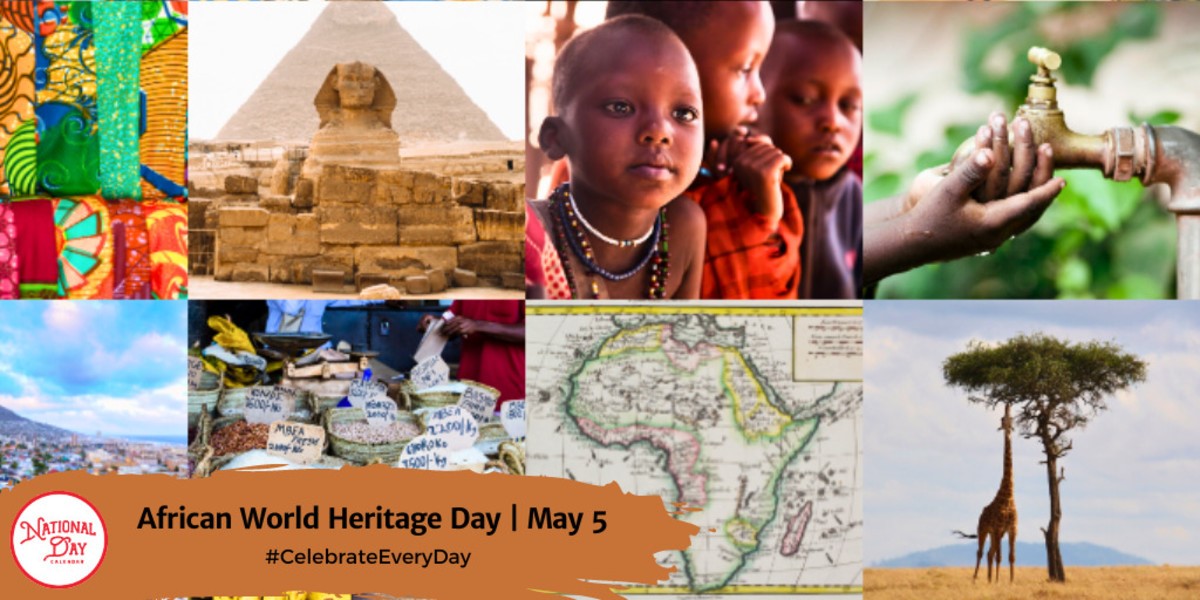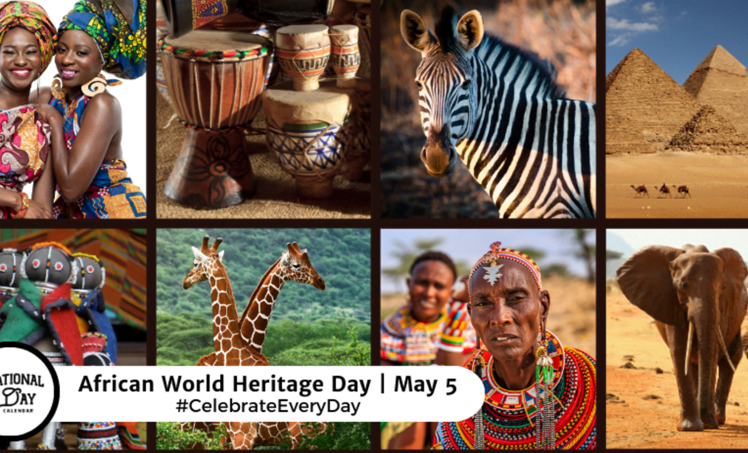Celebrated on the 5th of May each year, African World Heritage Day (AWHD) is a continental and global celebration of Africa’s rich, natural and exceptional intangible and tangible cultural heritage. That is; on this day, the international community acknowledges the authenticity of African natural landmarks, traditions, beliefs, and folk cultures. Although the cultural wealth of Africa’s intangible cultural heritage is documented a large amount remains on the periphery or locked away in museum vaults and private collections. Despite being the world’s second largest continent, Africa accounts for only 12% of all inscribed sites globally on the World Heritage List. However 39% of these properties are listed as endangered, according to reports from the United Nations Educational Scientific and Cultural Organisation (UNESCO).[i] So, bearing this historic underrepresentation in mind, the continent still has much to achieve in safeguarding of its heritage which requires the universal priority. Educating communities about the past can help to secure a better future and education even in the most challenging circumstances is vital to support African countries in their endeavours to protect their heritage.
It is critical to note that education is a key enabling factor to facilitate such conversations and call to action through social media and other digital tools as modes to create engaging and enriched learning programs centred on the values of African heritage. Education has the power to positively and effectively alter people’s perceptions of African heritage, which is essential to building resilient and inclusive communities in Africa and around the world. Current innovations in technology has certainly reduced the challenges of reaching millions of people across all levels of society drawing attention to the dangers that these ‘living heritage’ are confronted with. Through sustainable partnerships individuals, government, institutions and international agencies can partner or collaborate on various activities aimed at educating and informing the public on the immense significance of preserving world heritage sites in Africa. For example; The African Heritage Fund, the African Union and UNESCO representatives have over the years undertaken numerous heritage education activities and initiative in concerted efforts towards protecting and promoting World heritage sites across the African continent. The training of young heritage researchers combined with local and international networks have continued to utilise modern and traditional tools to combat the effects of climate change, human conflicts, looting and illicit trade. AWHD 2024 prioritises the value of education as an integral cornerstone of development and progress in safeguarding and restoring so that every African gain access to vital information on conservation and preservation of the invaluable heritages of Africa.
In advocating and raising awareness for the safeguarding this diverse heritage AWHD provides an opportunity for Africans at home and across the Diaspora to become more active and culturally engaged in supporting local, regional and international cooperation between Africa and the rest of the world. When we include local communities in dialogue and provide resources that also empower them in heritage preservation, then they are more likely to be proactive in the protection and management of historical sites and monuments.. As stewards of the continents enduring civilisation which reflects a greater part of human history and culture we must ensure that countries are able to adapt and thrive in this rapidly evolving landscape. As the African Caribbean Institute of Jamaica/ Jamaica Memory Bank moves forward to educate the public about the African continent’s cultural patrimonies in various forms; that is exhibitions, educational outreach programmes and research, let us bridge the inter-cultural and intergenerational divide by educating each other to fully appreciate and value AWHD.
________________
[1] UNESCO, World Heritage Convention. “Convention Concerning the Protection of the World Cultural and Natural Heritage. Intergovernmental Committee for the Protection of the World Cultural and Natural Heritage.” Paris, July 4, 2023. https://whc.unesco.org/archive/2023/whc23-45com-5C-en.pdf


Sources
Page, Tom. “Sub-Saharan Africa just hit 100 World Heritage Sites. UNESCO says that’s not enough.” CNN Travel. November 16, 2023. https://edition.cnn.com/2023/11/16/travel/sub-saharan-africa-100-world-heritage-sites-unesco-not-enough-spc/index.html
United Nations Educational Scientific and Cultural Organisation. World Heritage Convention. “Convention Concerning the Protection of the World Cultural and Natural Heritage. Intergovernmental Committee for the Protection of the World Cultural and Natural Heritage.” Paris, July 4, 2023. https://whc.unesco.org/archive/2023/whc23-45com-5C-en.pdf
African World Heritage Fund. “Celebrating African World Heritage Day 2024.” Awhf, April 12, 2024. https://awhf.net/2371-2/
